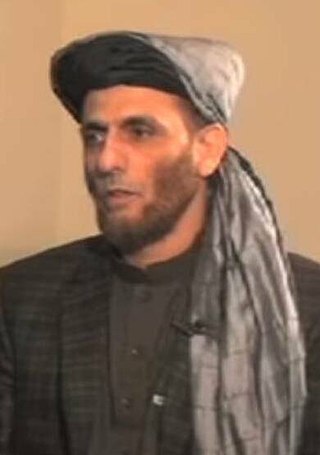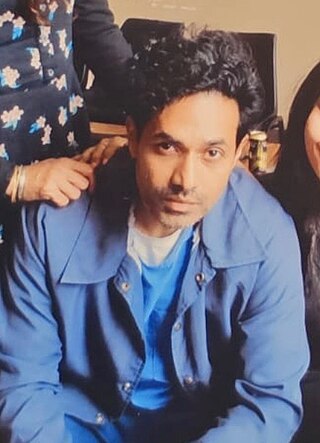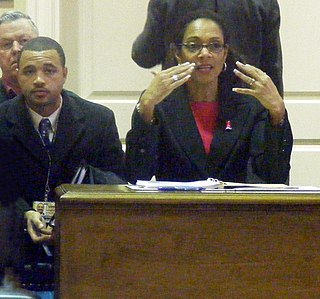In jurisprudence, double jeopardy is a procedural defence that prevents an accused person from being tried again on the same charges following an acquittal or conviction and in rare cases prosecutorial and/or judge misconduct in the same jurisdiction. Double jeopardy is a common concept in criminal law - in civil law, a similar concept is that of res judicata. The double jeopardy protection in criminal prosecutions only bars an identical prosecution for the same offense, however, a different offense may be charged on identical evidence at a second trial. Res judicata protection is stronger - it precludes any causes of action or claims that arise from a previously litigated subject matter.

A jury trial, or trial by jury, is a legal proceeding in which a jury makes a decision or findings of fact. It is distinguished from a bench trial in which a judge or panel of judges makes all decisions.
Jury nullification (US/UK), jury equity (UK), or a perverse verdict (UK) occurs when the jury in a criminal trial gives a not guilty verdict regardless of whether they believe a defendant has broken the law. The jury's reasons may include the belief that the law itself is unjust, that the prosecutor has misapplied the law in the defendant's case, that the punishment for breaking the law is too harsh, or general frustrations with the criminal justice system. Some juries have also refused to convict due to their own prejudices in favor of the defendant. Such verdicts are possible because a jury has an absolute right to return any verdict it chooses.

Faryadi Sarwar Zardad is an Afghan former warlord. In 2005, he was convicted in the United Kingdom, for conspiring to take hostages and conspiring to torture during the 1990s in Afghanistan.

The Scottsboro Boys were nine African American male teenagers accused in Alabama of raping two white women in 1931. The landmark set of legal cases from this incident dealt with racism and the right to a fair trial. The cases included a lynch mob before the suspects had been indicted, all-white juries, rushed trials, and disruptive mobs. It is commonly cited as an example of a legal injustice in the United States legal system.
Not proven is a verdict available to a court of law in Scotland. Under Scots law, a criminal trial may end in one of three verdicts, one of conviction ("guilty") and two of acquittal.
Barry Michael George is an English man who was found guilty of the murder of English television presenter Jill Dando and whose conviction was overturned on appeal.

The Jury is a British television serial broadcast in 2002. The series was the first ever to be allowed to film inside the historic Old Bailey courthouse.
Jane Longhurst was a British special-needs teacher and musician who was murdered by Graham Coutts on 14 March 2003. Longhurst's partly decomposed body was found burning in woodland in West Sussex on 19 April. Coutts, who was dating Longhurst's best friend, was a guitarist and part-time salesperson living in Brighton.

In the legal jurisdiction of England and Wales, there is a long tradition of jury trial that has evolved over centuries. Under present-day practice, juries are generally summoned for criminal trials in the Crown Court where the offence is an indictable offence or an offence triable either way. All common law civil cases were tried by jury until the introduction of juryless trials in the new county courts in 1846, and thereafter the use of juries in civil cases steadily declined. Liability to be called upon for jury service is covered by the Juries Act 1974.

Anand Jon Alexander, better known as Anand Jon, is an Indian-born American celebrity fashion designer who was convicted of sex crimes in a highly racially charged trial that now meets the California Racial Justice Act for Relief starting January 2024.

The World's End Murders is the colloquial name given to the murder of two girls, Christine Eadie, 17, and Helen Scott, 17, in Edinburgh, in October 1977. The case is so named because both victims were last seen alive leaving The World's End pub in Edinburgh's Old Town. The only person to stand trial accused of the murders, Angus Robertson Sinclair, was acquitted in 2007 in controversial circumstances. Following the amendment of the law of double jeopardy, which would have prevented his retrial, Sinclair was retried in October 2014 and convicted of both murders on 14 November 2014. He was sentenced to life imprisonment with a minimum term of 37 years, the longest sentence by a Scottish court, meaning he would have been 106 years old when he was eligible for a potential release on parole. He died at HM Prison Glenochil aged 73 on 11 March 2019. Coincidentally, he died on the same day the BBC's Crimewatch Roadshow programme profiled the murders.
The Nancy Kissel murder case was a highly publicised criminal trial held in the High Court of Hong Kong, where American expatriate Nancy Ann Kissel was convicted of the murder of her husband, 40-year-old investment banker Robert Peter Kissel, in their apartment on 2 November 2003. It was arguably the highest profile criminal case involving an expatriate in Hong Kong's history, and was closely covered in the media.

The trial of Sheila Dixon, then mayor of Baltimore, started on November 9, 2009. It was the first of two scheduled trials for Dixon on a variety of charges. The charges stemmed from alleged corruption on the part of the mayor involving gifts she allegedly received and gift cards she allegedly stole.

Her Majesty's Advocate v Thomas Sheridan and Gail Sheridan was the 2010 criminal prosecution of Tommy Sheridan, a former Member of the Scottish Parliament and his wife Gail Sheridan for perjury in relation to an earlier civil case called Sheridan v News Group Newspapers. Tommy Sheridan was found guilty and sentenced to three years in prison, whereas Gail was acquitted.

R v Evans and McDonald was the prosecution of two footballers, Ched Evans and Clayton McDonald, who were accused of the rape of a woman. On 20 April 2012, Evans was convicted and sentenced to five years imprisonment. McDonald was acquitted. Several people were later fined after naming the woman on Twitter and other social media websites.

Alex Hepburn is a former cricketer from Australia and convicted sex offender, who last played for Worcestershire County Cricket Club in England. In April 2019, he was sentenced to five years' imprisonment for the rape of a sleeping woman as part of a WhatsApp-based "sexual conquest game". He was imprisoned at HM Prison Littlehey until October 2021.
Daniel Ken Holtzclaw is a former police officer in the United States. He was convicted in December 2015 of multiple counts of rape, sexual battery, and other sex offenses while working for the Oklahoma City Police Department.
The Keighley child sex abuse ring was a group of twelve men who committed serious sexual offences against two under-aged girls in the English town of Keighley and city of Bradford, West Yorkshire. In December 2015, they were found guilty of rape and other forms of sexual abuse by a unanimous jury verdict at Bradford Crown Court. They were sentenced in February 2016 to a total of 130 years in jail. The main victim, who had been targeted by ten of the men, was aged between 13 and 14 at the time of the attacks between 2011 and 2012.
Her Majesty The Queen v. Matthew McKnight was a criminal prosecution of Matthew McKnight on thirteen charges of sexual assault between 2010 and 2016.










